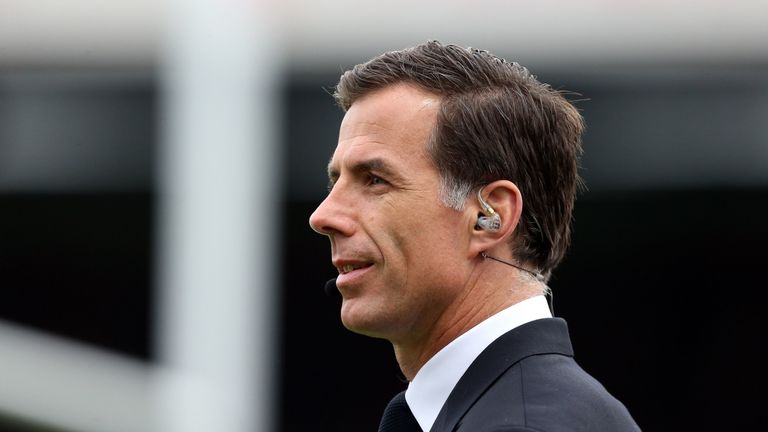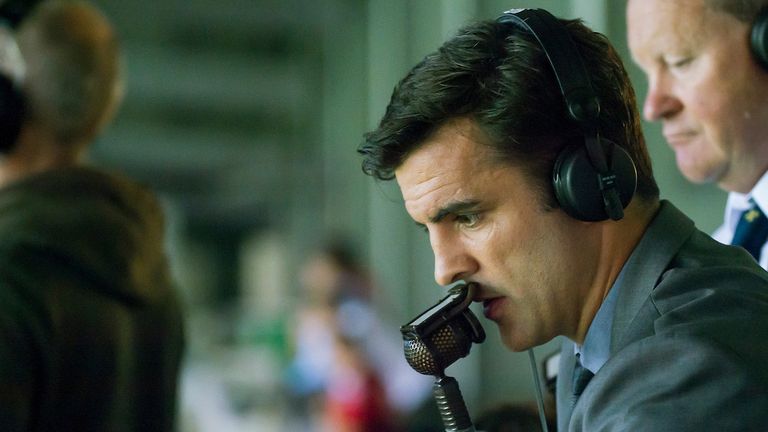Super League: Brian Carney and Phil Clarke debate player welfare

Saturday 11 April 2020 12:55, UK
On the latest episode of the Golden Point Daily podcast, Sky Sports rugby league experts Brian Carney and Phil Clarke got into a heated debate about how a condensed Super League season would impact player welfare.
In Australia, the NRL have already announced plans to restart their season on May 28, but so far Super League and the RFL have not set any possible date to resume the 2020 campaign with the coronavirus pandemic still ongoing.
When the season does eventually resume, it is likely teams will have to play midweek matches to fit postponed fixtures in, which sparked a lively discussion between former top-level players Clarke and Carney.
That came on the back of recent comments from Leeds Rhinos chief executive Gary Hetherington that playing midweek games to get the season finished is "not a player welfare issue - it's a performance issue".
'You're assuming teams are going to play the same players'
Phil Clarke: I guess it comes down to you definition of welfare. Mine would be the health, fortunes and happiness of a person or group, and you can interpret that in any different way. Are we talking the short-term or the long-term? Are we talking physical or mental health?
I can only quote the only research I know in rugby league, which when it looked at the Easter Weekend double-headers did not show an incidence of a higher rate of injury.
There was also some evidence to suggest that because there were games being played less than a week apart, the intensity, the collisions and forces involved in many of the impacts were lower, the players were - in theory - maybe even safer because there was less chance of being injured with a significant injury.
Then you are making an assumption the teams are going to play the same players within a three, four or five-day period. I'm not, and I think this is a fantastic opportunity.
All teams have a second team and some juniors as well. I think this a wonderful opportunity to rotate the squads. They have got time to factor that into the training they do, so there may be some adaption in the individual player training they have, and you do not have to play the same players in all of those games.
I think a sensible suggestion would be to play a midweek game maybe once a month. There are a lot of factors here such as do we get the games in, do we get the Challenge Cup in and does that become a midweek game to try to get it in?
Obviously, there is a balancing act and all the clubs have got a lot to take on board. But ultimately it's the fans, both a home watching on TV and the ones who go to the ground who determine it, and there is a balance between finding the right number of games.
'These are things that need to be explored'
Brian Carney: Unfortunately, English rugby league, when it comes to injury assessments, is probably underfunded, under-reported and under-investigated.
If we take a survey done on professional footballers - albeit a different code - they found with a recovery period of fewer than five days the risk of muscle injury increased significantly. They did not take an Easter period, they took 130,000 professional football games.
Then we put it in with a survey done by Professor Craig Twist, of the University of Chester, and a professional New Zealand rugby union study which showed your injury recovery begins - but doesn't finish - two, three, four or five days after playing a game.
If you combine that evidence and information, you can be pretty certain in saying the likelihood of injury is increased the less recovery you have as a player.
What about increased exposure concussions? The more games you play, the greater chance you have of being concussed. If you play under fatigue, there is the argument your tackle technique crumbles a bit and you may have more incidents of concussion. You certainly would open up the risk to that and it's something to be discussed.
These are things that need to be explored. They do not get dismissed with pejorative language that would say to anybody who would question player welfare being a topic when you are talking about playing midweek games as a whinger, instantly eliminating trying to have any discussion.
The health of the players and the elevated risk of injury is a player welfare issue. What if it's a lower muscle injury which keeps a player out who cannot earn a contract and then impacts on his earning ability?
If one person plays all three games in a week then it is a player welfare issue.




